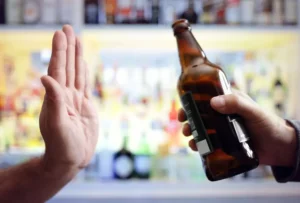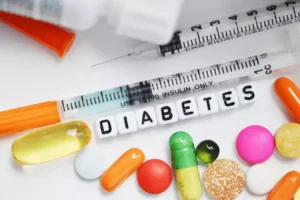
Outside of professional support, aiming to rediscover your individuality can be helpful. You can try spending time alone and pursuing individual interests and former hobbies. Reach out to friends and family to start rebuilding relationships separate from your partner. As we navigate the complex landscape of love and relationships, it’s crucial to remember that healthy love enhances our lives without consuming them. By learning to distinguish between love and addiction, we can open ourselves to the possibility of genuine, nurturing connections that support our growth and well-being. Love addiction is a complex issue that can have profound impacts on an individual’s life and relationships.
Love Addiction: What Are the Stages of Codependency?
“I’m stunned, devastated and speechless. I love you, Tito. My most sincere love & prayers for the entire Jackson family. I love you all VERY much”. Steve Manning, a long-time Jackson family friend and former Jackson family manager, https://ecosoberhouse.com/ told Entertainment Tonight that Jackson died on Monday. There will be days you go backward and there will be days you make amazing leaps forward. It is the most terrible and effective thing you, as a helper, can do—stop helping.

Internet Gaming Addiction: Recognizing Signs and Finding Help
However, a 2017 literature review finds that the euphoria and compulsion some experience from love and intense passion can be addictive. The review’s authors argue that there is behavioral, neurochemical, and neuroimaging evidence from various studies to show that love can be an addiction similar to SUD. By learning the signs and stages of a codependent relationship, you can identify if you might need to break a codependent pattern. The most important thing to know is that you can break the cycle of codependency. This site is not intended to provide and does not constitute medical, legal, or other professional advice.
What kind of disorder is love addiction?

When they reach the point in their substance use when they get a DUI, lose their job, or go to jail, for example, it can be difficult to accept that the best thing they can do in the situation is nothing. If your loved one has become addicted to alcohol, however, their brain chemistry may have changed to the point that they are completely surprised by some of the choices they make. For instance, spending time away from someone with an addiction can give you the necessary time to reflect on your life, partake in your favorite hobbies and care for your health. It can be emotionally taxing to love someone with addiction, but there are ways to care for yourself and them without enabling their behavior. Detaching with love can be an incredibly positive thing for both you and your loved one.
The Ambiguous Loss of Loving an Addict and Letting Them Go
It’s one that often takes multiple people to help treat, including doctors, friends, and family members. In people with addiction, dopamine receptors activate and tell the brain that drugs are rewards. Over time, the brain changes and adapts as it becomes dependent on the substance being used. Your perspective on another person’s addiction is not the reality of their experience. Someone opening up to you about addiction is likely a sign that they trust you. Respect how difficult it might be for them to talk about their feelings and behaviors.
- When it comes to living with someone with an addiction, though, such goals may be a bit more challenging.
- In time, family members become as obsessed with the alcoholic as he or she is with alcohol.
- However, once you let go of the need for closure, you free yourself to be present in the moment with your full attention.
- While we tend to think of addiction purely in terms of substances, it is also possible to get addicted to certain behaviors or experiences.
Many people choose not to believe this, but that doesn’t make it any less true. Once you can really grasp the reality of this concept and live by it, your life will become much easier. While most losses are located in a specific time and space, the loss of a family member to addiction may be less pin-downable. The feelings of grief and distress color the feelings you have for that person.
We are driven to find solutions to problems and find closure for circumstances that generate emotional distress. The immediacy and consistency of positive rewards for any movement in a healthy direction has been shown to shape behavior in addictive individuals that can increase the odds of recovery. Setting boundaries protects your personal health and well-being, is more likely to help your addicted loved one, and can help ensure that you’ll be satisfied with the relationship as well. There’s very little you can do, and you certainly can’t fix the person. Addiction is a complex disease, and there’s no amount of threatening or begging that’s going to eliminate the problem. Instead, one of the best things you can do when you love an addict is making sure you’re not enabling them.
Some of these methods may seem harsh, but they come from a loving approach with the ultimate goal to help the person overcome their addiction and to help all parties heal. When supporting a partner or family member who is in active addiction to alcohol or other drugs, it’s critically important that you also take care of your well-being. Drug addicts use and drink to ease their emotional pain and emptiness. They often try to control their drinking or using and may be able to stop for a while, but once dependency takes hold, most find it impossible to stop using or drink like non-alcoholics. When alcoholics try to curb their drinking, they eventually end up drinking more than they intend despite their best efforts not to.
- Remember that they are still a person with likes, dislikes, opinions, and desires.
- Research on the causes and triggers of the condition is lacking, but factors such as trauma and genetics likely play a role.
- We feel frustrated and resentful from repeatedly believing the addict’s broken promises and from trying to control an uncontrollable situation.
- Though challenging, sticking to your boundaries can be important in these tough circumstances.
- At Gateway Foundation, we offer addiction education and support for families facing addiction.

The more knowledge you have about addiction, the better you’ll be able to communicate. Learn more about addiction from reliable medical sources, and try to understand your loved one’s point of view. Remember that language matters, and communicate as respectfully as possible. loving an addict Some words can negatively influence how people with addiction feel about themselves and their ability to recover. A support group such as Al-Anon Family Groups may also be a helpful source of support when you have someone in your life with a drinking problem.
Cell Phone Addiction: The Hidden Dangers of Smartphone Dependency

Denial is an easy coping mechanism, as it can shield you from the pain substance use might be causing in your life. You might tell yourself things will get better, but it’s vital to remember that the situation will not improve simply because you wish for it. It can be tough for loved ones, especially parents and significant others, not to take addiction personally. It’s not unusual to think that something you did caused them to use drugs or that you could’ve spared them from harm if only you did things differently. Guilt isn’t productive for anyone’s healing, but your involvement in their treatment and recovery can give them much-needed strength and support.
No comment